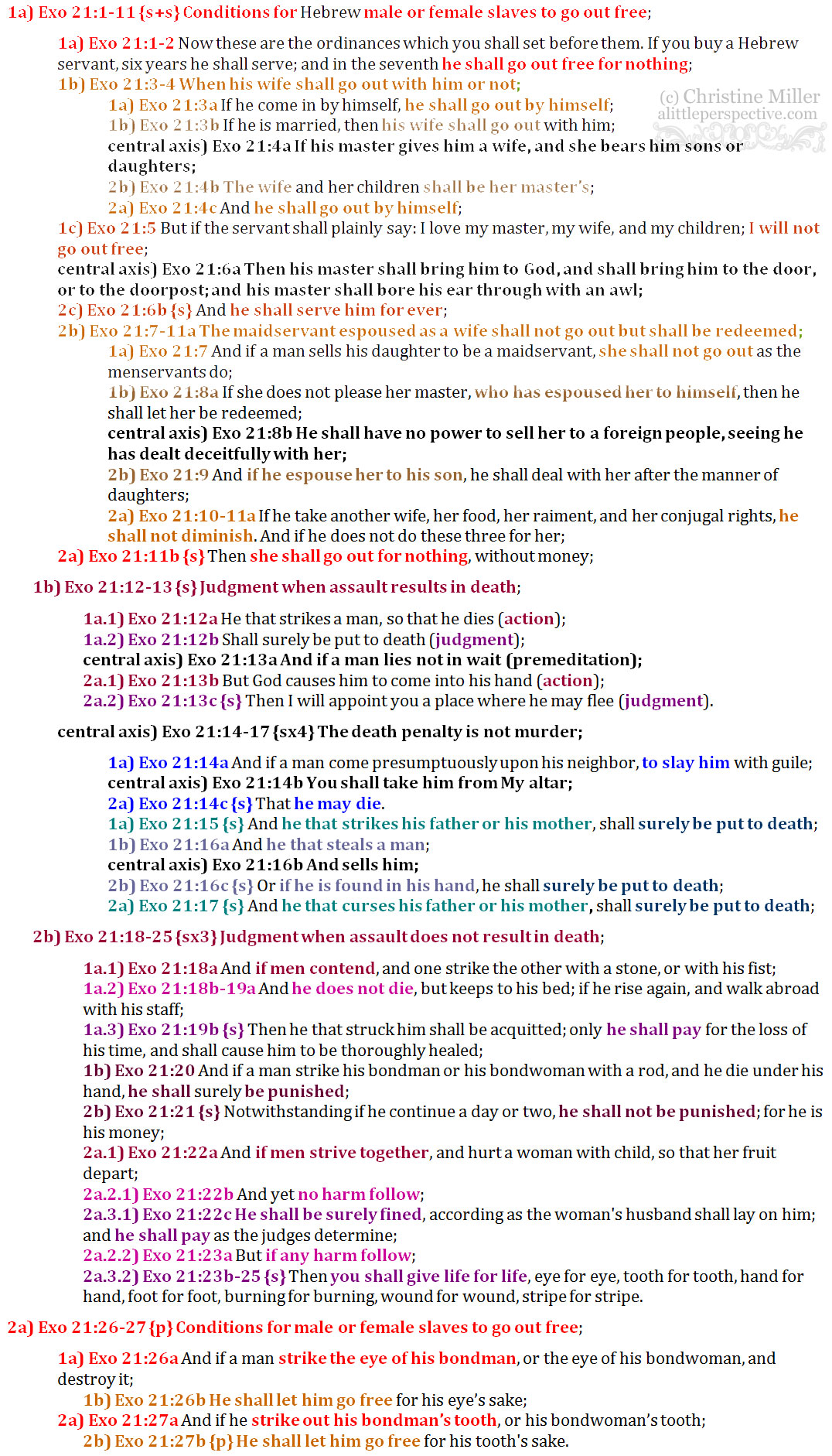Read Exodus 21:1-27 at Bible Gateway.
Hebrew paragraph divisions
Exo 21:1-6 {s} Conditions for a Hebrew male slave to go out free
Exo 21:7-11 {s} Conditions for a Hebrew female slave to go out free
Exo 21:12-13 {s} Manslaughter is not murder
Exo 21:14 {s} Murder receives the death penalty
Exo 21:15 {s} Striking father or mother receives the death penalty
Exo 21:16 {s} Kidnapping receives the death penalty
Exo 21:17 {s} Cursing father or mother receives the death penalty
Exo 21:18-19 {s} Assault of a neighbor when he does not die
Exo 21:20-21 {s} Assault of a male or female slave when he does or does not die
Exo 21: 22-25 {s} Assault of a woman with child when the child does or does not die
Exo 21:26-27 {p} Conditions for male or female slaves to go out free
Strong theme
Exo 21:1-27 {sx10+p} Restitution in cases of slavery, or when a person causes injury or death (‘You shall not commit murder’)
Exo 21:1-27 chiastic structure
Yesterday we questioned why the Torah says of the bondman, “He is his money;” when the Torah also teaches us that persons are not property. I don’t believe Torah is contradicting itself here. But if a master in a fit of anger lashes out against his bondman, and strikes him, the master runs the very real possibility that his bondman will go out free.
But if the master is trained to consider to himself, “I must not lash out, for he is my money,” then the master, if he still thinks the bondman needs punishing, has to go get a rod to mete out the punishment. It inserts a delay between the infraction and the punishment, which gives a chance for a cooler head to prevail. The Torah is teaching masters to treat their bondmen with care since they have monetary value, in an age when masters in the nations surrounding Israel did not treat their bondmen with care. The Torah compels the master to act with deliberation and reason, and not from the heat of the moment.
The Torah recognizes the status and value that men have by requiring reparations be made for injuries they suffered, But Torah is also elevating the status of women, the unborn, and the bondman and woman, by requiring reparations be made for injuries they also suffered.
This is how you build a cultural identity of respect, honor, and value into a society coming out of pagan nations who beat their slaves, sacrificed their children to idols, and made their women second-class persons.


















Leave a Reply